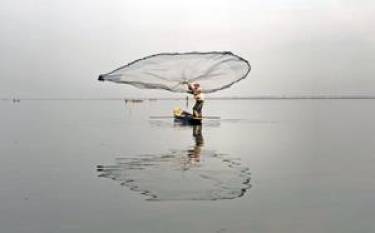KOCHI, 20 July 2024: Implementation of the Minimum Legal Size (MLS) banning juvenile fishing has led to a 41% increase in the yield of threadfin breams in Kerala, indicating a positive output of the regulation.
A study by the ICAR-Central Marine Fisheries Research Institute (CMFRI) on threadfin breams found that the regulation led to an increase in the spawning stock biomass, standing stock biomass, yield and recruitment of this fish which is one of the fish species most affected by juvenile fishing.
The study was presented at a stakeholder workshop organized by CMFRI to discuss various research findings of the institute with representatives of fishermen and those working in the allied sectors.
In order to make the regulation more effective, the CMFRI suggested implementing the MLS across the value chain and strictly enforcing mesh size regulation of the fishing nets.
Dr Grinson George, Head of the Marine Biodiversity and Environment Management Division presided over the workshop. CMFRI’s study was presented by Principal Scientist Dr T M Najmudeen.
“Curbing the juvenile fishing could be more beneficial to the marine fisheries sector and would save the species from the threat of extinction.
Over the past seven years, it is estimated that the sector incurred a loss of Rs. 1777 crore due to the juvenile fishing of five species, namely threadfin breams, oil sardine, lizard fish, squid and groupers. Estimated average annual loss for fishing young ones of these fishes amounts to Rs. 216 crores”, said the study report.
It also revealed that 70 per cent of sharks, which are not covered under the MLS, caught along Kerala coast are below the breeding size.
Decline in Consumption Post-COVID
A significant decline in consumption patterns among fishermen in Kerala post-COVID-19 pandemic was also mentioned in the report. The study indicated a reduction in expenditure on essential items such as food, clothing, rent, and education compared to pre-pandemic levels. Consumption dropped by 34% in the Ernakulam district, followed by Alappuzha (13%) and Malappuram (11%).
Dr Shoba Joe Kizhakudan, Dr A P Dineshbabu, Dr V V R Suresh, Dr R Vidya, and Dr. Livi Wilson also spoke on the occasion.
Fishermen demanded effective intervention in issues such as increasing number of fishing vessels, destructive fishing methods, juvenile fishing, low prices of shrimps, marine pollution, lack of regulation beyond the territorial sea, and depletion of resources.
Image credit: menafn.com























